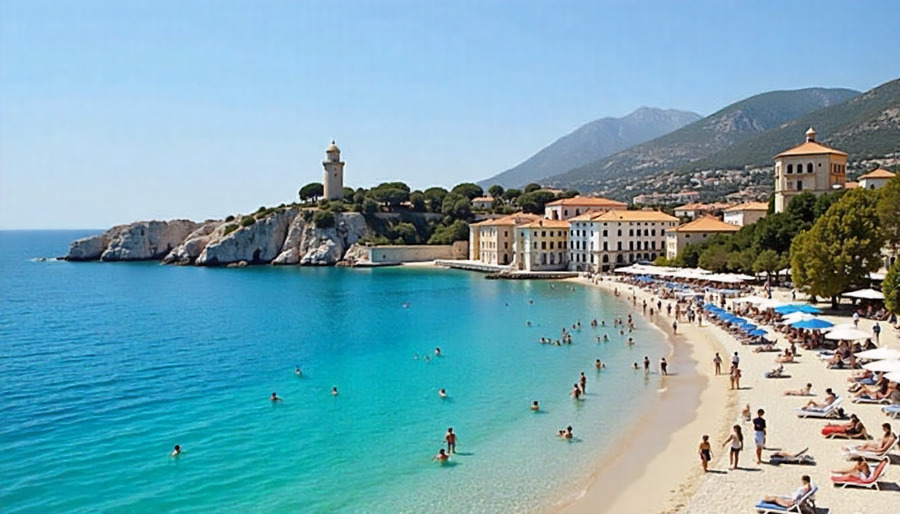Published on
October 18, 2025

Palma, a top destination for British tourists, is taking significant steps to tackle the growing concerns of overtourism. The Balearic city has introduced a series of new regulations aimed at reducing overcrowding, protecting local residents, and addressing the city’s housing crisis. The new measures include banning party boats, halting new tourist rentals, and limiting the establishment of additional youth hostels.
With the rapid rise in tourism over the past decade, Palma’s residents have become increasingly vocal about the negative impacts, particularly the rising cost of living and the loss of affordable housing. The city’s authorities are responding by implementing changes designed to safeguard local communities while still preserving Palma’s appeal to visitors.
New Rules on Tourist Rentals to Alleviate Housing Shortages
One of the central components of Palma’s new measures is the ban on additional tourist rentals. Previously, the city’s rules only applied to multi-family homes, but under the new regulations, the restrictions now extend to single-family homes and room rentals listed on platforms like Airbnb. As a result, only 639 licensed tourist properties will remain, and those properties will not be replaced if they are removed from the market.
This decision comes in response to growing concerns about the impact of short-term rentals on Palma’s housing market. Many residents argue that the influx of tourists into the rental market has led to soaring property prices, making it increasingly difficult for locals to find affordable homes. The local government aims to ensure that tourism doesn’t further squeeze the housing supply, which has been a key issue for Palma’s residents.
Ban on Party Boats and Youth Hostels
In addition to restrictions on tourist rentals, Palma is also introducing a ban on party boats along the city’s seafront. These boats, which host large, often noisy groups of tourists, have been a frequent source of disturbance for locals. Starting next tourist season, party boats will no longer be allowed to dock in Palma, with enforcement measures set to be put in place in collaboration with the Balearic port authority.
Palma’s new rules also include a ban on establishing new youth hostels. The city will encourage existing hostels to transition into hotels or residential properties. This shift is designed to move away from the types of tourism that attract large groups of young partygoers, focusing instead on more sustainable and community-friendly forms of tourism. This will help reduce the strain on local infrastructure while maintaining Palma’s reputation as a desirable destination.
A Wider Trend Across Spain
Palma’s decision is part of a larger national effort across Spain to curb the effects of overtourism. Alongside Majorca, other cities in Spain, including Barcelona, are also grappling with the impacts of uncontrolled tourism. In response, Spain has introduced stricter regulations for holiday rentals, including more frequent inspections and tighter cooperation with platforms such as Airbnb.
A report by the Spanish government revealed that around 7,000 illegal holiday flats are still operating in the Balearic Islands, contributing to the housing crisis. These illegal rentals not only exacerbate the scarcity of housing but also drive up rent prices, making it more difficult for locals to find affordable accommodation. The Spanish government has identified the housing crisis as a “social emergency” and is taking steps to resolve the issue, including introducing new licensing systems and enforcement measures.
Protecting Local Communities and Promoting Sustainable Tourism
The changes in Palma are part of a broader movement to ensure that tourism benefits both visitors and locals. With the cost of living on the rise in Spain, the government has acknowledged the need for a sustainable tourism model that doesn’t exploit local resources or drive up costs for residents. A third of Spaniards report that they can’t afford a week-long holiday, which underscores the economic challenges facing the local population.
Tourism remains one of Spain’s key industries, with Palma continuing to attract millions of visitors each year. However, as the country’s popularity grows, local authorities are making it clear that tourism must be managed in a way that doesn’t harm residents’ quality of life. While the measures in Palma may be viewed as a disruption to the tourism industry, they are a necessary step to ensure a more equitable distribution of the benefits of tourism.
Looking Ahead: A Balanced Future for Palma
Palma’s new regulations send a strong message about the city’s commitment to responsible tourism. By limiting party boats and tourist rentals, and encouraging the transformation of hostels into residential properties, the city is creating a tourism model that prioritizes sustainability and community well-being. These measures may be difficult for some businesses in the short term, but in the long run, they aim to ensure that Palma remains a thriving and welcoming city for both residents and visitors.
In the years to come, Palma hopes to set an example for other destinations struggling with the pressures of overtourism. By finding a balance between attracting tourists and protecting the interests of locals, the city is working toward a future where tourism can coexist with the needs of the community.



